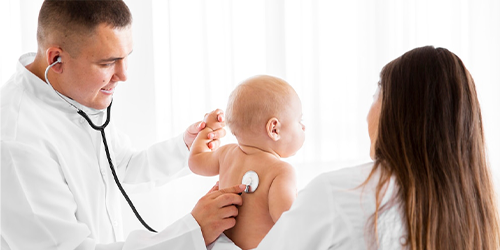


Welcoming a baby into the world brings immense joy, but it also comes with the responsibility of navigating through common childhood illnesses. One of the most prevalent challenges faced by new parents is handling a baby’s cough and cold. Understanding the causes, recognizing symptoms, and implementing safe and effective remedies are crucial aspects of providing comfort to your little one.
Recognizing Baby Cough and Cold Symptoms
Before delving into remedies, it’s essential to recognize the symptoms of a baby’s cough and cold. Common signs include:

1. Coughing: Persistent coughing, often accompanied by a congested or runny nose.
2. Sneezing: Frequent sneezing, which is the body’s natural way of clearing the nasal passages.
3. Congestion: Difficulty breathing due to nasal congestion, leading to fussiness and discomfort.
4. Fever: A mild increase in body temperature, indicating the body’s response to an infection.
5. Irritability: Babies may become irritable, have difficulty sleeping, and exhibit changes in appetite.
Safe and Effective Remedies
1. Hydration is Key:
Ensure your baby stays well-hydrated with breast milk or formula. Hydration helps thin mucus, making it easier for your baby to cough or sneeze out.


2. Humidifier Use:
Using a cool-mist humidifier in your baby’s room helps add moisture to the air, relieving nasal congestion. Be sure to clean the humidifier regularly to prevent mold growth.
3. Elevate the Head:
Elevate your baby’s head slightly during sleep by placing a rolled towel under the mattress. This can help ease congestion and promote better breathing.


4. Saline Drops and Aspirator:
Use saline nasal drops to help loosen mucus, followed by a bulb syringe or nasal aspirator to gently clear the nasal passages. This is particularly effective before feeding or bedtime.
5. Warm Baths:
A warm bath can be soothing and help relax your baby. The steam from the warm water may also help alleviate congestion.


6. Breast Milk as a Natural Remedy:
Breast milk is not only an excellent source of nutrition but also contains antibodies that can help your baby fight off infections. Consider breastfeeding more frequently during illness.
7. Over-the-Counter Medications (Under Guidance):
Consult your pediatrician before using any over-the-counter medications. Some medications may not be suitable for infants, and dosages need to be carefully adjusted.


8. Comforting Foods:
If your baby has started eating solid foods, offer soothing options like warm soup, pureed fruits, or mashed vegetables. These can be easier on the throat.
9. Avoiding Irritants:
Keep your baby away from smoke and other irritants that can exacerbate respiratory symptoms. Ensure a smoke-free environment.


10. Medical Consultation:
If symptoms persist or worsen, seek prompt medical attention. Your pediatrician can provide guidance on the appropriate course of action and, if necessary, prescribe medications.
When to Seek Medical Attention
While most baby coughs and colds are mild and can be managed at home, certain signs warrant immediate medical attention:

Persistent High Fever: A persistent fever or a sudden spike in temperature may indicate a more severe infection.
Difficulty Breathing: If your baby is struggling to breathe, is wheezing, or shows signs of respiratory distress, seek medical help promptly.
Dehydration: Signs of dehydration include a decrease in wet diapers, sunken fontanelle, and lethargy.
Refusal to Eat: If your baby refuses to eat or shows a significant decrease in appetite, consult your pediatrician.
In conclusion, addressing a baby’s cough and cold requires a combination of tender care, safe remedies, and timely medical intervention when necessary. By staying informed and attuned to your baby’s needs, you can help them navigate through these common childhood ailments with love and confidence. Always consult with your pediatrician before introducing any new remedies or medications to ensure they are appropriate for your baby’s specific situation.

